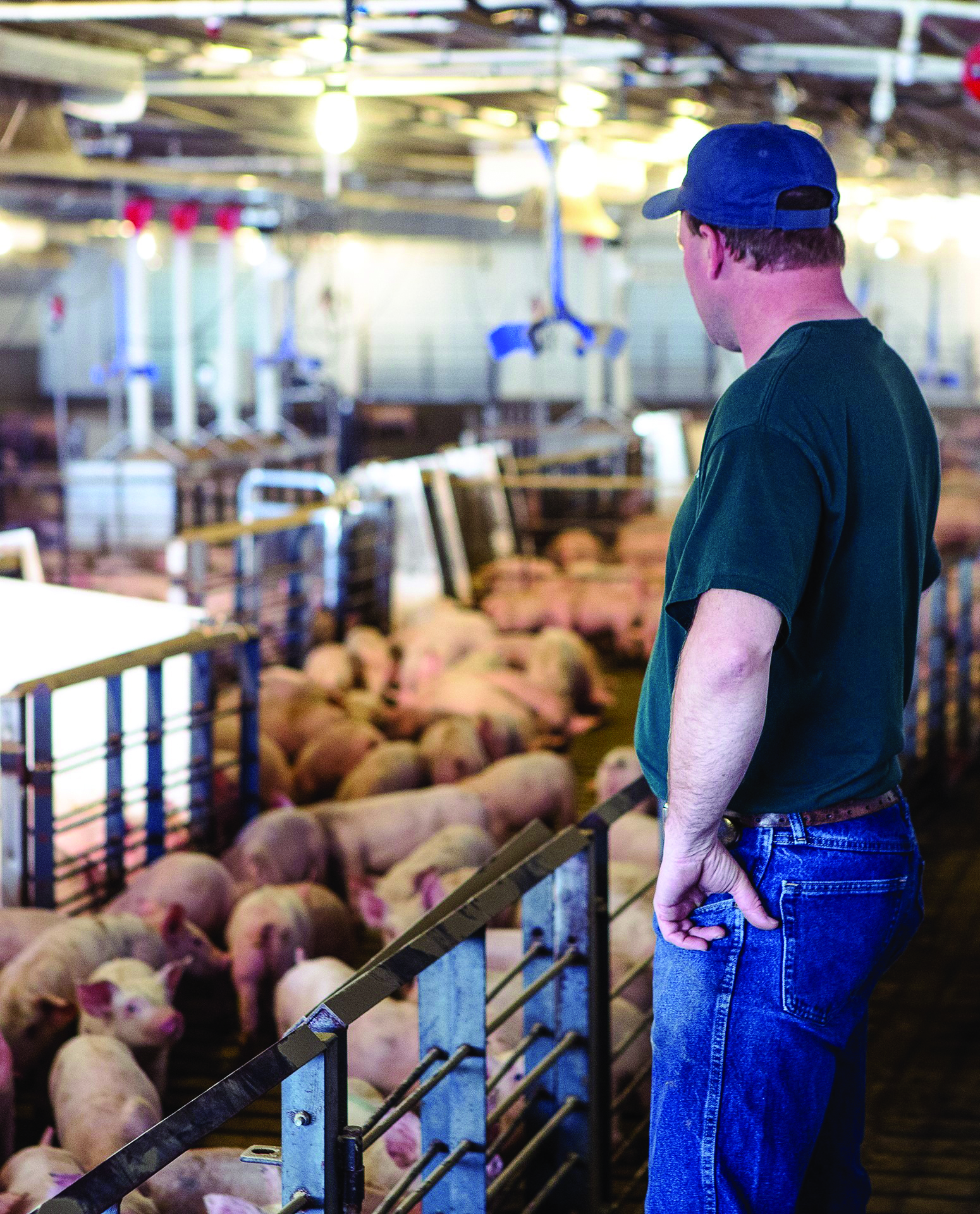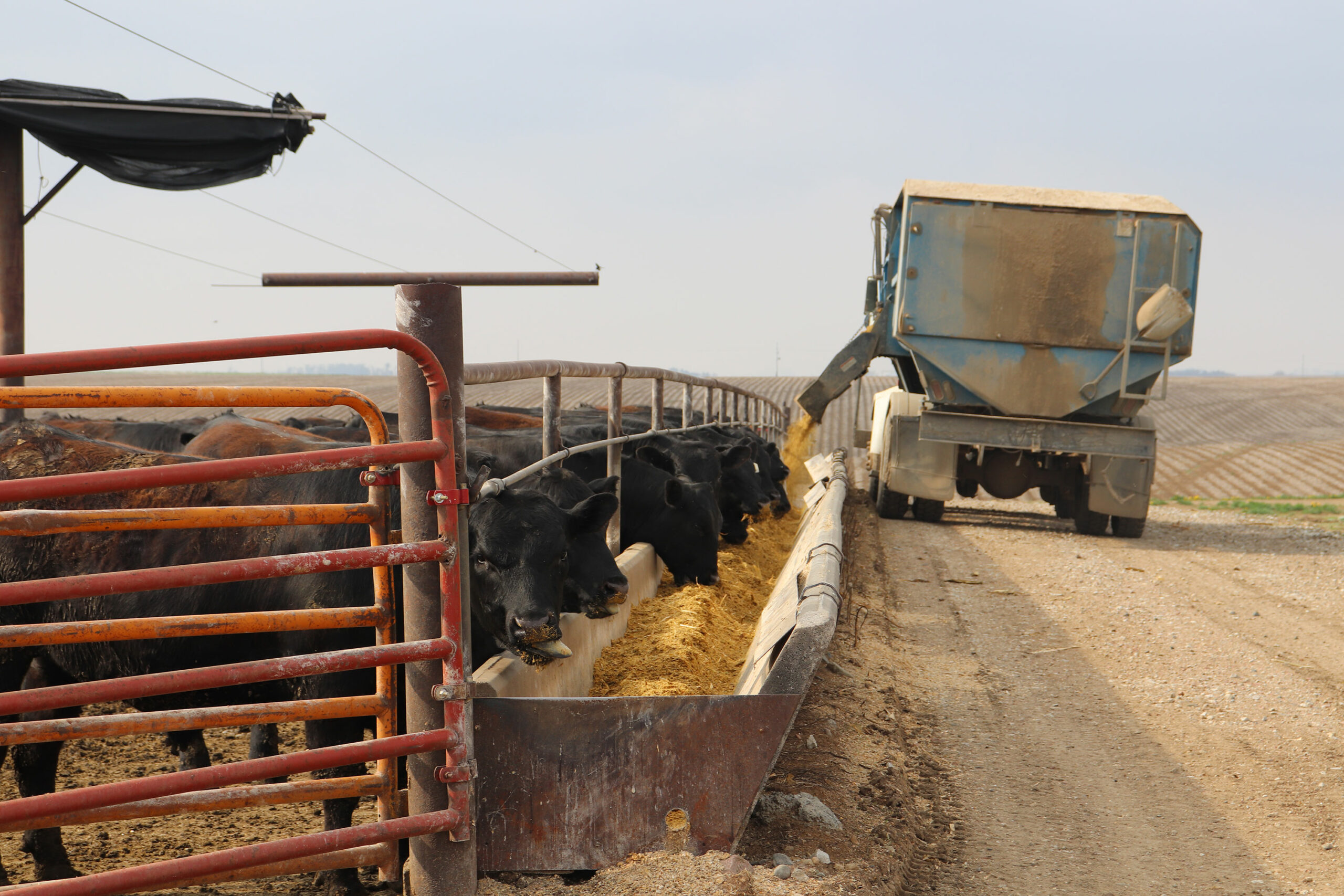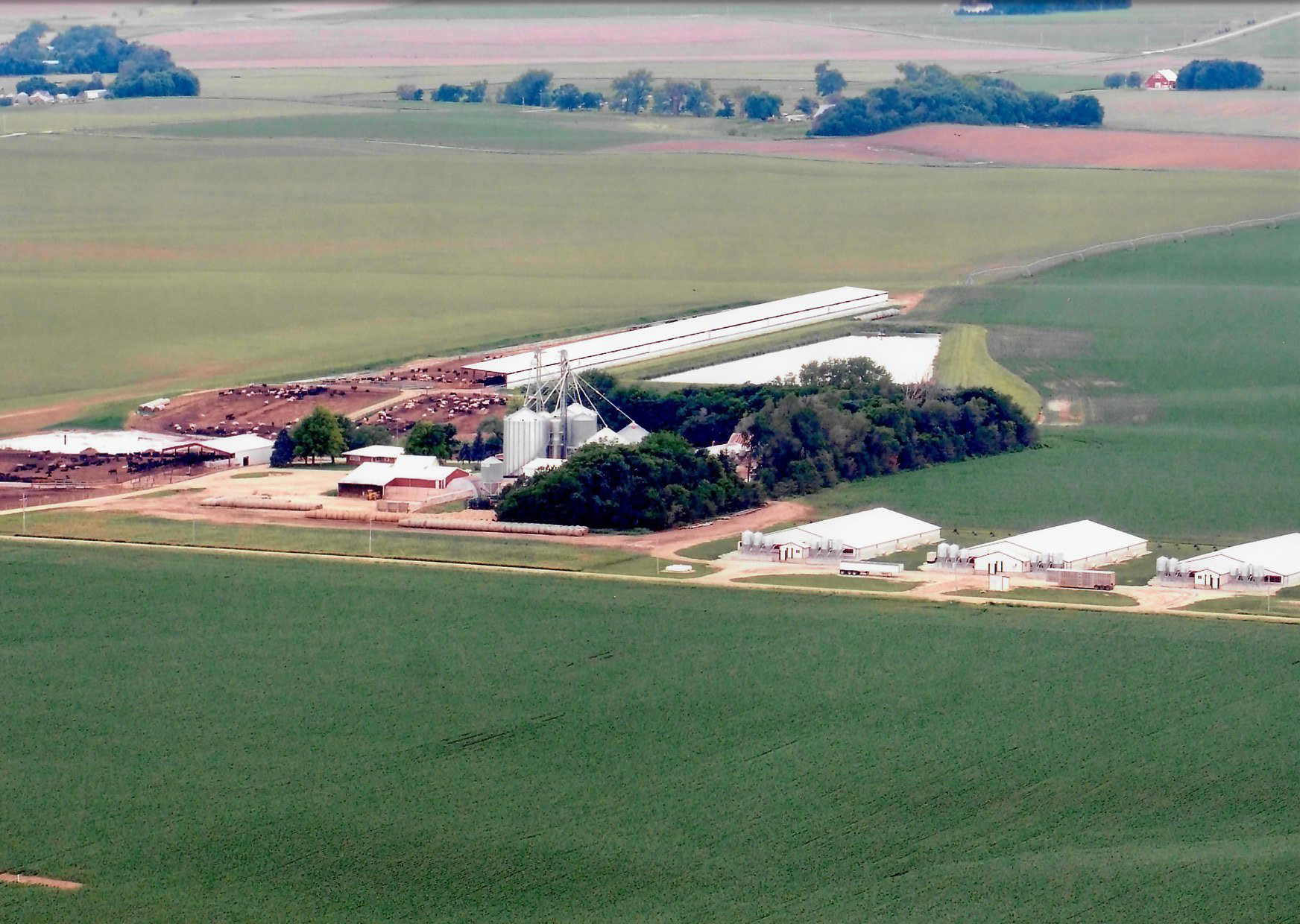Farmers constantly face challenges, and extreme situations sometimes call for unconventional solutions. The original author of the proverb, ‘necessity is the mother of invention’, has been lost to history, but it wouldn’t be much of a stretch to imagine the root of this phrase to be a reference of farmers’ unique ability to spawn innovation. After all, it is in this spirit that Larry Zobel and his family’s operation near Bancroft, Nebraska have thrived despite the logistical difficulties brought during the early days of the Covid-19 pandemic in 2020.
Larry, 53, is part of the fifth generation to work on Zobel Family Farms, and he can trace its history back to 1880, when his great-great grandparents established their homestead in northeastern Nebraska. Today, the farm has grown to 3000 acres of corn and soybean production, which is almost entirely used as feed support for his livestock business. The Zobels have a 2000-head cattle feed lot, as well as a finishing space that accommodates 6000 hogs.
Heavily investing in livestock has its ups and downs, and like many livestock producers, Larry’s operation had to evolve to roll with the punches of early 2020.
“When Covid hit and the packing plants started shutting down, we had a lot of hogs and cattle ready for slaughter,” Larry said. “Cattle are more forgiving with time, as they can get a little bigger and it’ll be all right – but when hogs get to a certain size, they really need to go to slaughter. That’s the nature of the beast.”


Thus began a period of transition for Zobel Family Farms. With meat processing unavailable, they began selling hogs directly to folks who wanted to try slaughtering for themselves, from deer hunters who had never attempted to process pigs before to loads of people from the general public who took to YouTube to learn the basics. Soon, more people came who didn’t have the ability to take a live animal, so the Zobels found a nearby source that took care of skinning, cleaning, halving, and wrapping hogs for folks to take home and cut up on their own. But as the summer wore on, that wasn’t enough to meet the output demands of the farm.
“As things progressed, we were able to get a few slots at the USDA Certified Processors to get Individual USDA Certified Cuts, and we started having the retail cuts available, selling halves and quarters on the beef side or whole processed hogs,” Larry said.
Over the past two years, the Zobels have put more and more of their focus on handling all aspects of production, from raising the feed crops to taking their end products directly to consumers. Once everything is processed, the logistics of storing everything becomes a problem, so this spring they are breaking ground on a large on-farm freezer, which will enable them to have sufficient storage to fulfill meat orders and ship them directly to customers. The new facility will also have a retail store inside, allowing local customers to buy and purchase meat on-site.
“It’s a very big investment to get into it,” Larry said. “My expertise is in production. I raise the animals but don’t have the know-how to process them, so our partners do that part. We take it to their facility, it’s processed, cut, and frozen, and then we pick it up and bring it back to our freezer facility where we sell out of our online store, as well as at many farmers’ markets from May through October.”
Although opening an online store was something Larry and his wife, Tami, had discussed for years, the difficulties brought forth by the pandemic really drove home the need for them to adapt and adopt a new model quickly. Although a significant portion of their direct business continues to be done locally across eastern Nebraska, more and more of their customer base is shifting farther afield. Now, through their website, zobelfamilyfarms.com, people from all across the country can place orders directly from the farm and receive a package on their own doorsteps within days. The Zobels deliver from coast to coast, with meat going to customers from Florida to California. With such a wide reach, keeping everything fresh and cold while in transit presents a challenge.
“One of the hardest parts of doing the online business is the shipping aspect, but there is a knack or trick to it,” Larry said. “We ship in insulated boxes on dry ice, and we want it there in three days, no more than four – dry ice will last that long in our shipping containers. Then, we only ship on Mondays to make sure nothing is held over the weekend.”
With their direct-to-consumer model beginning to flourish, Zobel Farms has effectively been able to create a pipeline in which they fully control every aspect of production from planting the crops all the way to when their meat products reach the end user. Larry credits the continuing evolution of production agriculture as an essential contributing factor in his farm’s ability to attain its goals.
Grain production has really improved,” Larry said. “Precision ag has become more common, and we know a lot more about our soils than we used to. Back then, you didn’t do all the soil tests and precision to narrow down to one-acre grids to where fertility was good and it was bad. By bringing the precision aspect into it, you’re able to bring up the yields on the poor-producing acres and almost make it a level field, making every acre the same. That is the ultimate goal.”
In addition to precision soil analysis, Larry has also turned his attention to soil biology, using manure from the livestock side to enrich his soils with variable rate applications, which improve both the fertility and efficiency of his fields.
“When I started in the early 90s, manure was kind of a bad word,” Larry said. “You just got rid of it. Now it’s an asset that we can use to our advantage, and we can spread it better, too. We’ll cover 50-60% of our acres with manure every year, and we’ve started trying to hit more acres just to get more of the biological aspects out of the manure, which in turn enhances what the commercial fertilizer brings.”
In pursuit of better fertility, last year Larry also invested in a SoilWarrior strip-till machine, which allows him to variable rate apply fertility close to the seed. While he’s still tweaking a few things, he makes multiple passes with the two-tank implement to precision-apply phosphorus, potash, sulfur, zinc, boron, and manganese in the strip. With the planter pass, Larry is applying additional liquid fertility, as well as naturals in the furrow, and he’s upgraded the planter with ExactEmerge drives and hydraulic downforce to try to be more precise with seed placement and spacing.
“Production is going up, and we’re taking our populations down,” Larry said. “We’re trying to get to 10 bushels per 1000 plants on the corn side. Back 10 years ago, we might have been 35,000 to 36,000 on irrigated corn. We still do some at 34,000, but now we’re planting at 30,000 to 32,000 without seeing much decrease in yield – actually, yields have gone up. On the soybean side, we’ve changed the most. We used to plant 160,000 to 165,000. Now, we’re down to 110,000 and still producing great yields.”
When it comes to other inputs and agronomy advice, the Zobels work with Hefty Seed Company, which has several stores in eastern and central Nebraska.
“We’ve been working with Jacob (Gubbels) for as long as they’ve been in West Point, about seven or eight years,” Larry said. “They are our main provider chemical, fungicide, and some of our trace fertilizers. Having them as a partner on that side of the business is a very vital aspect for us.”
On the seed side, Larry works with Ken Carlson to put in hybrid plots to learn which characteristics work better in his environment, and he credits him with helping to find the best choices to keep improving yields and profitability on each of his specific acres.
“He’s very knowledgeable about the seed market,” Larry said. “We have many good partners that we’ve done business with for more than 20 years, and they’re all valuable in what they bring to the table. However, I will say that what Hefty’s does is push them all to do better because we will talk to Hefty’s and get good information. I really love their team and all the people, Brian and everybody. There’s a lot of knowledge there.”

It takes a lot of work to establish, maintain, and expand in any operation, and good partners help make that possible. And although Larry is grateful for the help and support his operation has received, from the local processors that make his meat distribution business possible to the valuable advisers at Hefty Seed Company and beyond – for him, family is the most important.
“Everything goes back to family,” Larry said. “Without family, none of this would ever be possible.”

